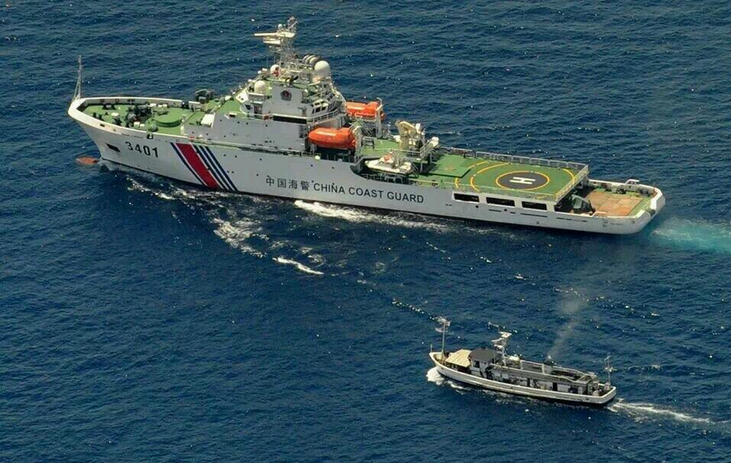
BEIJING — China on Sunday again rejected an attempt by the Philippines to challenge its vast territorial claims over the South China Sea through international arbitration, a week before a deadline for Beijing to respond to the case.
China prefers to settle its disputes in discussions with the countries directly involved. However, after China took control of a disputed shoal following a naval standoff with the Philippines near its coastline, Manila filed a case early last year with a tribunal operating under the U.N. Convention of the Law of the Sea. It provides a regulatory framework for the use of the world’s seas and oceans.
Xu Hong, director general of the Foreign Ministry’s Department of Treaty and Law, said the Philippines was “obstinately pushing forward arbitration procedures” and urged it to negotiate with Beijing instead. He told reporters that China was committed to rejecting and not participating in the arbitration proceedings.
However the arbitration works, “It won’t change the history or the facts of China’s sovereignty over the South China Sea islands as well as the adjacent waters,” Xu said.
The document released Sunday elaborates on China’s previous arguments that territorial sovereignty is beyond the scope of the tribunal. It said China’s rejection of arbitration is in line with international law and that China and the Philippines have previously agreed to settle territorial disputes through negotiations.
The Philippine government will study China’s paper and may issue a response later, said Department of Foreign Affairs spokesman Charles Jose.
The department has previously said arbitration would lead to a “more durable” and rules-based solution to the long-simmering territorial disputes.
The Philippines is questioning the legality of China’s “nine-dash line,” a rough demarcation of China’s territory on its official maps that virtually envelopes most of the South China Sea, including areas that other Asian nations also claim.
The tribunal has invited China to respond by Dec. 15. Xu said the publication of the paper was not linked to the deadline but had simply taken time to draw up.
Associated Press writer Jim Gomez in Manila, Philippines, contributed to this report.